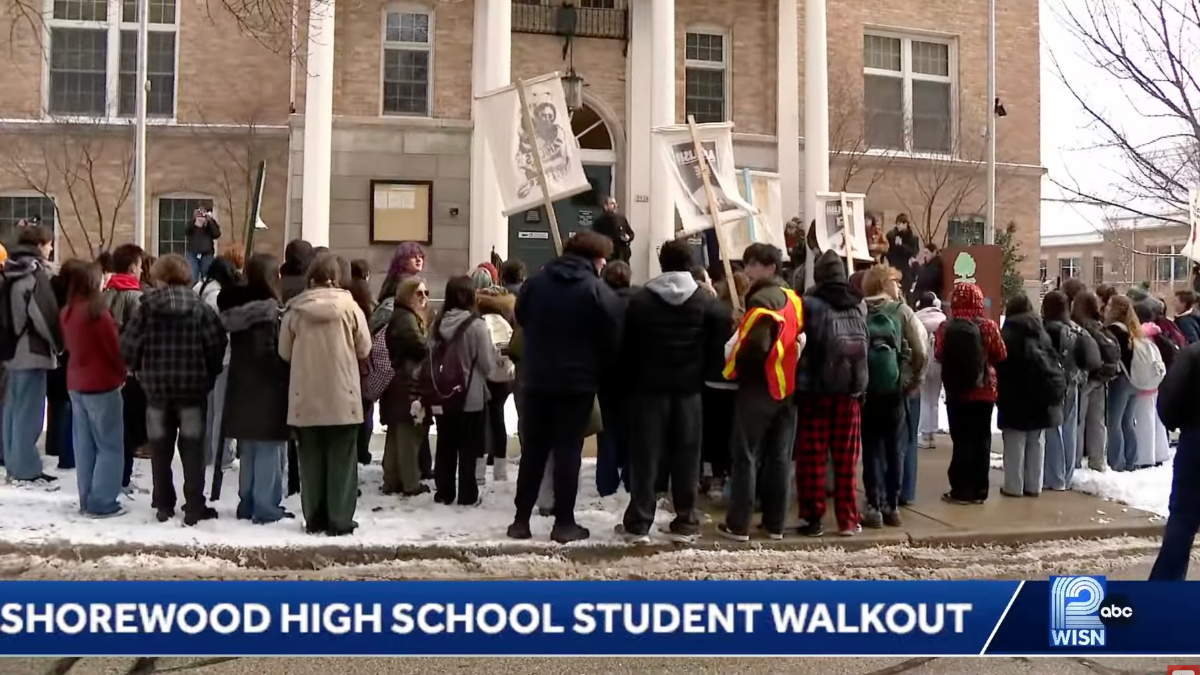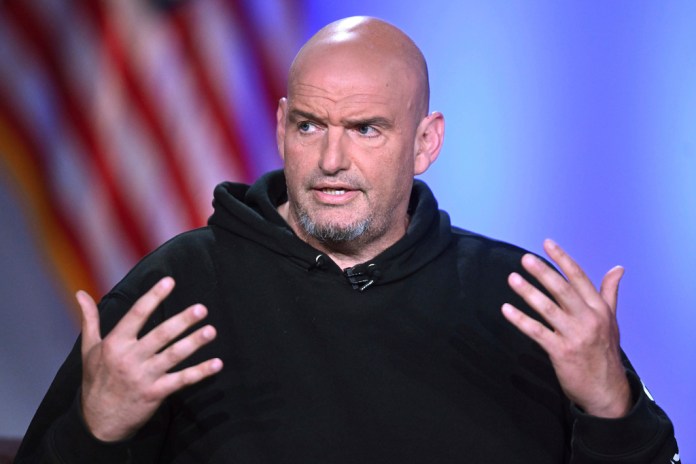Union members hand deliver letter to Fetterman’s office
The article discusses efforts by union members, specifically the Service employees International Union (SEIU), who gathered in Harrisburg, Pennsylvania, to hand-deliver letters to U.S. Senators John Fetterman and Dave McCormick. They urged the senators to preserve extended Affordable Care Act (ACA) tax credits, crucial for low-income workers, especially in light of an impending potential government shutdown.
With the government shutdown deadline approaching, Congressional Republicans proposed a continuing resolution to fund the government through 2026 but excluded the ACA tax credit extension, which Democrats insist upon. Senator fetterman emphasized his support for extending the ACA tax credits and stated he opposes any government shutdown.
Union members expressed concerns about the impact of losing these credits on approximately 300,000 Pennsylvanians who may lose health coverage. Workers like Lynn Weidner, a home care employee who buys insurance through Pennsylvania’s marketplace, shared personal struggles with rising costs, underscoring how a predicted 82% premium increase could force her to choose between housing and health care.
the article also highlights broader fears among healthcare workers about catastrophic effects on the healthcare industry if coverage lapses: increased uncompensated care, hospital closures, higher costs, longer wait times, and poorer access to preventative care leading to more emergency cases. There are worries about vulnerable populations, such as the elderly, losing adequate care.
A recent poll noted strong public support-77% of Americans favor extending the enhanced ACA premium tax credits, including many Republicans. The union members’ message to lawmakers is clear: protect affordable healthcare coverage and prevent economic hardship for workers and the healthcare system alike.
Union members hand deliver letter to Fetterman’s office
(The Center Square) – With a government shutdown hanging in the balance, the fight for extended Affordable Care Act tax credits is hitting home for low-income workers.
In Pennsylvania, the Service Employees International Union, or SEIU, convened a group of dozens of health care workers in Harrisburg to deliver letters to U.S. Sens. John Fetterman, a Democrat, and Dave McCormick, a Republican, asking them to preserve the credits.
Congressional Republicans floated a continuing resolution bill to fund the federal government through 2026 that left out the extension which Democrats had posed as a non-negotiable. Without compromise, the government would be forced into a shutdown after the Sept. 30 deadline, something Fetterman says he can’t support.
“I enthusiastically support extending the ACA tax credits,” wrote Fetterman on X. “I’ll never vote to shut our government down over that or any reason. It’s a core responsibility of Congress to maintain a functioning government and I refuse to hold it as hostage.”
SEIU members say they don’t have a stance on whether the government should be shut down. They just want Fetterman to use the opportunity to reflect the needs of the 300,000 Pennsylvanians who may lose health care coverage.
Kathy Caber, the senator’s constituent services director, met the union workers on the ground floor of his Harrisburg office.
“He’s been on your side with this. He agrees with this,” said Caber. “I think that shutting down the government is a separate issue that has consequences.”
The government has shut down less than a dozen times, most recently under President Donald Trump for 35 days between 2018 and 2019. The result is hundreds of thousands of furloughed federal employees, the slowing or stopping of a broad stretch of work and usually huge costs to the government itself.
“We worked hard for Fetterman to get into office,” said home care worker Lynn Weidner. “We donated. We knocked on doors, made phone calls. He needs to represent us. It’s his job. That’s why we put him there.”
Weidner has asthma and purchases her insurance through Pennie, the state’s marketplace. She says her monthly premium is $450. For someone making just $14 per hour working 40 hours per week, Weidner says the average 82% increase predicted if the credits lapse will cost her coverage.
“My housing is going up, too. Every year, my rent goes up by $100, but my income doesn’t go up. I don’t get raises every year, so at some point I’m going to get priced out of my apartment,” said Weidner. “I am going to have to choose between my health and my housing, and it’s not fair.”
For home care workers like Weidner, their opportunities for higher pay are few and far between. The state’s Medicaid reimbursement for the hours of care they give is the lowest in the region. Gov. Josh Shapiro’s budget proposal included an additional $21 million toward the industry, which advocates say will be insufficient to bring workers up to the cost of living.
The worry isn’t limited to the insurance coverage of the workers themselves. Many in the health care field fear that the loss would have catastrophic effects on the industry. Those effects, they say, will also hit those with private insurance, decreasing access, increasing wait times, and raising prices.
Income from Medicaid is vital for hospitals and clinicians to keep their doors open, and critics point to the state’s low reimbursement rates as strains on the system. If the number of those who are uninsured rises, so will the rate of uncompensated care, or situations when hospitals do not receive any payment for their services.
To keep doors open, hospitals have two options: making cuts and raising prices. The commonwealth has seen both, and the result has been the spread of huge maternity care deserts and soaring health care prices.
Doctors also stress that when patients aren’t adequately insured, they don’t seek out preventative care. This means they’re more likely to show up in an emergency room when a problem is more dire – and more expensive – than it would have been if noticed earlier in the course of routine doctor visits.
A home care worker told The Center Square she worried about her patients losing ending up in nursing homes with low staff ratios and long waiting lists. A hospital worker said she worried for the elderly who had paid into the system all their lives and rely on it now that they are no longer working.
SENATE REJECTS DUAL DEMOCRAT AND GOP FUNDING BILLS AHEAD OF SHUTDOWN DEADLINE
“Every individual deserves the right to live independently,” said home care worker Helen Burke. “My consumers work. They pay taxes to the state. Damn it, you guys need to make sure those taxes are still being used for them.”
A recent KFF poll found that 77% of Americans support extending the credits.
" Conservative News Daily does not always share or support the views and opinions expressed here; they are just those of the writer."




